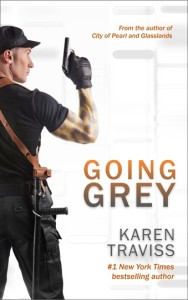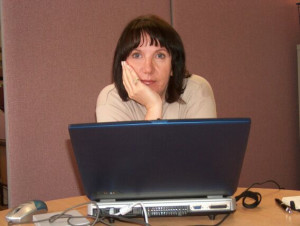Sometimes it’s hard to think of a good name for a character, location, or object. When I first started writing, I would ponder for days, sometimes weeks, trying to find the right name. Once I got on the Internet, though, I realized that the World Wide Web contains all sorts of resources that can make the task of naming your characters (and locations, and McGuffins) easier.
First and foremost is the wide variety of baby name sites on the internet. If I know a bit about my character’s personality, I can search “baby names meaning warrior, baby names meaning beautiful, baby names meaning leader, baby names meaning sorrowful.” I’m often able to come up with a name that suits my character and yet doesn’t sound painfully obvious (hint: if you’re naming your male character “Rad” then you’d better have more to that choice than just wanting to be sure your readers understand that this character is awesome.)
I’ve often wanted a character to belong to a particular real-world ethnicity (including Indian, Polish, Anishinaabe, and Celtic) and had difficulty naming them, because I don’t like to give characters the same names as real-world people I know from those cultures, and I really don’t like making up some nonsense word that “sounds Chinese, Polish, Celtic, etc” as that can be truly offensive. Online resources have provided me with lists of authentic names from those cultures.
Three cautions for baby name sites: as with much information on the Internet, verification is key. It’s easy for someone to say that a name or word means something when it doesn’t, and some names have a variety of interpretations (like my own, Mary, which means “chosen by God,” “bitter,” or “rebellion,” depending on who you ask). Cross-check your source to be sure it’s reliable.
Secondly, consider the culture of the character(s) and the setting of the story. If your setting is a modern medical school, it’s relatively easy to explain a character with a Greek name, a character with a Swahili name, a character with an Arabic name and a character with a Sri Lankan name as co-workers. If your setting is in Steampunk England at the turn of the 20th century, the explanation becomes more challenging. If your setting is a fantasy village and your characters are all natives of the same village, it’s almost impossible to explain why their names are from completely different languages. And while there can be interesting character hooks in, say, the Italian boy with the Pakistani name, or the Chinese girl whose name, translated, becomes a boy’s name in English, it can be confusing at best and insulting at worst if characters have ethnic names, but no other links to those ethnicities. Conversely, if your character has immigrated to a society where there is prejudice against her ethnicity, she may deliberately choose a new name that will be easier to pronounce and “fit in” with the majority of that society—or she may be forcibly given one.
Thirdly, recognize that some names carry pre existing associations. I love the idea of a girl’s name that means “to think like a man”—but the name in question is “Andromeda.” Andromeda’s already a well-known mythological figure and if I don’t want to conjure ideas of constellations and sea monsters in the reader’s imagination, perhaps another name is a better choice for my character.
Google can also be an invaluable tool if you’ve just made up a name that you think sounds really cool. The subconscious can play tricks on us; it’s possible that we might be borrowing a name that we’ve heard somewhere before and not realize it. Do you really want the star of your space opera to be named Luke or Kirk? Or the name that sounds neat to us might be similar to a word that’s embarrassing or offensive in another culture (witness the word “slag”, where the word’s literal definition is waste material from coal production. Sounds like a badass heavy-industrial name for, say, a fighting robot–except that in Britain, “slag” is a derogatory slang term for a promiscuous woman. Oops! And this is why a certain Dinobot has recently changed his name to “Slug.”) When I make up a cool-sounding new alien species, planet, or character name, I always run it through Google to see if it’s already part of some other franchise, or if it has meanings or associations that I didn’t realize.
The World Wide Web can provide writers with all kinds of inspiration for naming characters, places and objects. Search engines also provide a quick and easy way to double-check that the neat and totally original new name you just thought up hasn’t already been used by someone before you.



